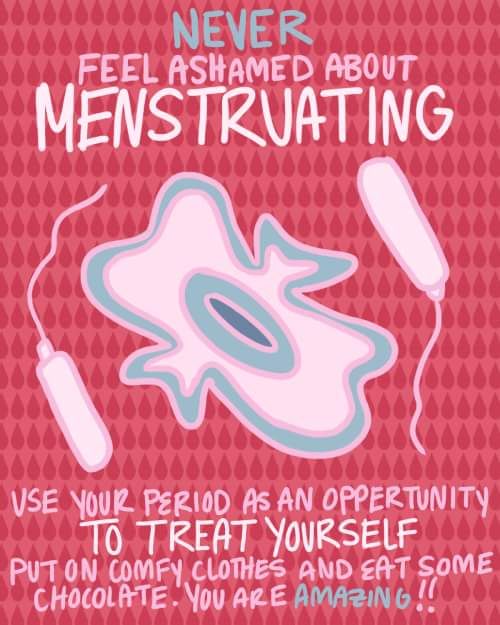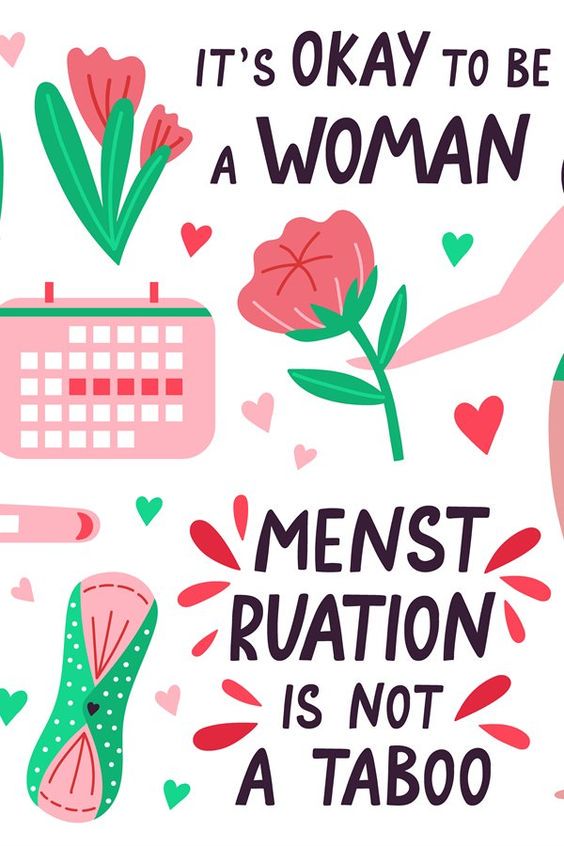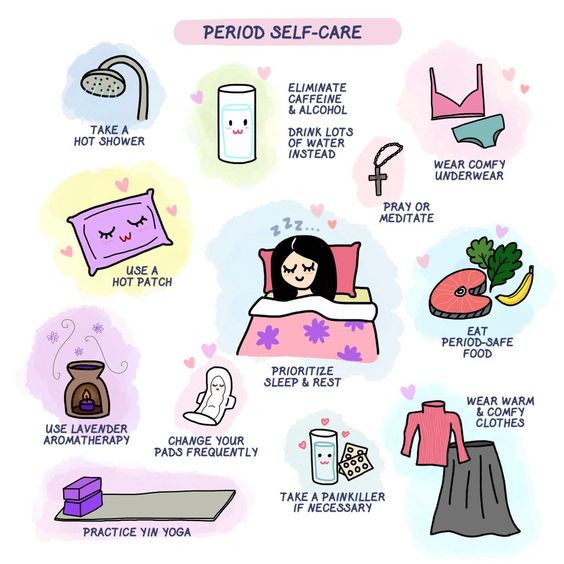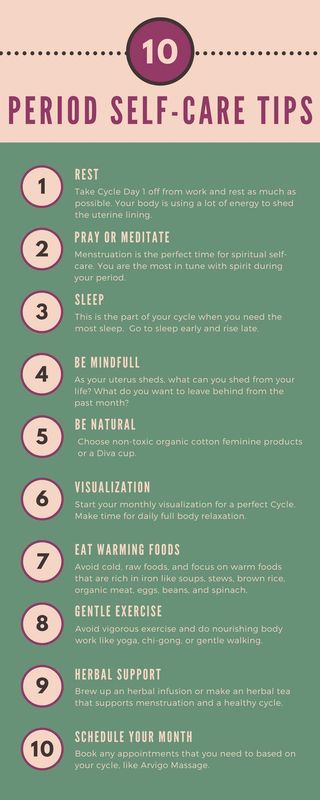Period Hygiene and Self Care
Hi everyone!! This is A_Girl_Lost_In_World
I'm back with yet another topic and most imp topic for all beautiful Girl's out here.
That is PERIODS/MENSTRUATION
Most of us or few of us are not so comfortable in speaking about it. It just periods right. Why feel shy? When so many things are spoken out loudly and when it comes to periods not many are that comfortable in speaking about it?

Nowadays it's so important that girls should know what menstruation is about. How should we handle when we get it. Regarding hygiene and self-care.
I'm uploading a small video please do check it out it's about how a grandma teaches her grandkid when she got her first menstrual, where as her mother was little uncomfortable to talk about it.
https://youtu.be/ZCY7yhgmNG4
Generally when we get menstruation be it our first period or after that they are quite a few restrictions.
1. Like don't come in kitchen.
2, Don't touch.
3. Don't touch pickles.
4. Don't speak about it loud
Which i never understood why? Do u guys know why? If yes do write in comment section and let me know.

And if u guys have observed in some shops even today they wrap sanitary pads packet in a paper and give.
And also a friendly advice if your menstrual cycle is not regular or you are bleeding for so many day visit a nice gynecologist. I'm saying this because I face same situation and after following the doctor's prescription I faced a lot so talk to your mother and visit a nice gynecologist.
Whatever I'm writing is from Google for proper information and my mom's advice which she shared with me and I'm sharing with u all.
Let's Talk about Period Hygiene
1. Change your sanitary napkins every 4-6 hours
Changing sanitary napkins within every 4-6hrs is very imp. Menstrual blood, when is released from the body attracts various organisms from our bodies which multiply in warmth of the blood and causes us irritation and which leads to infection and rashes.
2. Was yourself properly
Washing your vagina regularly is extremely important, because the organisms cling to your body after you removed your sanitary napkin. Washing vagina everyday keeps us away from irritation and rashes.
3. Don't use soaps or vagina hygiene products
While you're having menstrual don't use any kind of soaps or vagina hygiene products. On normal days it's a good idea but during periods things can turn around. Vagina have their own cleaning mechanism which comes into play during menstrual cycles, and these artificial products can hamper the natural process leading to infection.
4. Discard the sanitary napkins properly
Disposing off your tampons and sanitary napkins properly is an important step. Wrap them properly before you throw them away, so the bacteria and infections do not spread. Make sure you don't flush them, since that will block the toilet causing the water to back up, spreading the bacteria all over it. Washing your hands properly is of utmost importance after you have wrapped and discarded the used tampons and sanitary napkins, since you're likely to touch the stained area while wrapping them.
5. Stick to one method of sanitation
Women tend to use tampons and sanitary napkins, or two sanitary napkins simultaneously during heavy flow which is an efficient technique. While it may keep you dry and prevent stained clothes, it can cause infections too. The combination of two techniques absorbs the blood making us oblivious to the need to change our tampons and sanitary napkins. Without frequent change, the accumulated blood invites bacteria and causes infections. So, it is advisable to use one sanitary napkin and change it as frequently as you can during heavy flow. These cardinal rules will help you stay healthy and manage your period better.
Period Self Care

During menstrual cycle we need to eat good food and take lot of rest.
1. Make sure you're well rested
Notice that you feel fatigued or have trouble sleeping when your period is present or near? You're not alone. Getting enough sleep during your period and your premenstrual period may leave you feeling more energized and help stabilize your hormones. To create an environment that encourages you to stay well rested, make sure your room is a comfortable temperature, power down screens a few hours before you want to fall asleep, and try to set a schedule where you're waking up and going to sleep at the same time each day.
2. Stay active
A little bit of exercise can go a long way to ease some of your PMS and period symptoms. A yoga class might ease stress, bloating, and cramps, while a walk or run may encourage your body to release mood-boosting endorphins. Keep an eye on your energy levels and choose a workout that feels good, keeping in mind that just because you have your period doesn't mean you need to shy away from high intensity workouts at all times. In fact, at the start of your period you may have more energy and strength than usual, thanks to a drop in estrogen and progesterone levels. That said, if you're feeling tired, be sure to listen to your body and do a workout that's light or restorative.
3. Take a bath or use a heating pad
Heat, whether from a heating pad, warm bath, or hot shower, is one of the best ways to ease tension and reduce pain associated with cramps or muscle soreness. Plus, it may help you feel more relaxed and comfortable in general. Try adding some Epsom salt to your bath for an extra boost of pain relief.
4. Make a priority of eating right
It's pretty common to crave carbs and sugary foods as your period nears, but these can cause your energy levels to crash while also contributing to mood swings, bloating, and water retention. Instead of reaching for cookies, bagels, and other empty carbohydrates, focus on protein and healthy fats to keep your blood sugar levels stable and decrease inflammation, fiber to encourage healthy digestion and reduce bloating, and plenty of water, which can help with digestion, hormone regulation, and hydration.
Here are some food we need to eat during periods:
1. Water
Drinking a lot of water is always important, and this is especially true during your period. Staying hydrated can reduce your chances of getting dehydration headaches, a common symptom of menstruation.
Drinking plenty of water can also stop you from retaining water and bloating.
2. Fruit
Water-rich fruits, such as watermelon and cucumber, are great for staying hydrated. Sweet fruits can help you curb your sugar cravings without eating a lot of refined sugars, which can cause your glucose levels to spike and then crash.
3. Leafy green vegetables
It's common to experience a dip in your iron levels during your period, particularly if your menstrual flow is heavy. This can lead to fatigue, bodily pain, and dizziness.
Leafy green vegetables such as kale and spinach can boost your iron levels. Spinach is also rich in magnesium.
4. Ginger
A warm mug of ginger tea can improve certain symptoms of menstruation. Ginger has anti-inflammatory effects, which can soothe achy muscles.
5. Dark chocolate
A tasty and beneficial snack, dark chocolate is rich in iron and magnesium. A 100-gram bar of 70 to 85 percent dark chocolate contains 67 percent of the recommended daily intake (RDI) for iron and 58 percent of the RDI for magnesium.
6. Nuts
Most nuts are rich in omega-3 fatty acids, and they're a great source of protein. They also contain magnesium and various vitamins. If you don't want to eat nuts on their own, try nut butters or nut-based milks or add these ingredients to smoothies.
*Those who have nuts allergy don't eat them*
7. Quinoa
Quinoa is rich in nutrients such as iron, protein, and magnesium. It's also gluten-free, so it's a great food for those with celiac disease. Plus, it has a low glycemic index, which means you're likely to feel full and have energy for a long time after eating it.
8. Lentils and beans
Lentils and beans are rich in protein, so they're good meat replacements for vegans and vegetarians. They're also rich in iron, which makes them great additions to your diet if your iron levels are low.
9. Yogurt
Many people get yeast infections during or after their period. If you tend to get yeast infections, probiotic-rich foods like yogurt can nourish the "good" bacteria in your vagina and may help you fight the infections.
Yogurt is also rich in magnesium and other essential nutrients, like calcium.
10. Tofu
A popular source of protein for vegetarians and vegans, tofu is made from soybeans. It's rich in iron, magnesium, and calcium.
Foods To Avoid:
While all foods are OK in moderation, you might want to avoid certain foods that worsen the symptoms of your period.
1. Salt
Consuming lots of salt leads to water retention, which can result in bloating. To reduce bloating, don't add salt to your foods and avoid highly processed foods that contain a lot of sodium.
2. Sugar
It's OK to have sugar in moderation, but eating too much of it can cause a spike in energy followed by a crash. This can worsen your mood. If you tend to feel moody, depressed, or anxious during your period, watching your sugar intake can help regulate your mood.
3. Coffee
Caffeine can cause water retention and bloating. It can also exacerbate headaches. But caffeine withdrawal can cause headaches, too, so don't cut out coffee completely if you're used to having a few cups a day.
Coffee might also cause digestive issues. If you tend to get diarrhea during your period, reducing your coffee intake could stop this from happening.
4. Alcohol
Alcohol can have a number of negative effects on your body, which can exacerbate the symptoms of your period.
For example, alcohol can dehydrate you, which can worsen headaches and cause bloating. It can also lead to digestive issues, such as diarrhea and nausea.
Plus, a hangover can bring on some of the same symptoms that occur during your period, including:
i. Headaches
ii. Nausea
iii. Vomiting
iv. Diarrhea
v. Fatigue
5. Spicy foods
Many people find that spicy foods upset their stomachs, giving them diarrhea, stomach pain, and even nausea. If your stomach struggles to tolerate spicy foods or if you're not used to eating them, it might be best to avoid them during your period.
6. Foods you don't tolerate well
This might seem obvious, but it's worth emphasizing: If you have food sensitivities, avoid those foods, especially during your period.
If you're lactose intolerant, you might occasionally treat yourself to a milkshake, regardless. But during your period, it's especially important to avoid the foods that can trigger issues in your body.
Eating these foods can cause nausea, constipation, or diarrhea, which will only add to your discomfort when you're having a painful period.
Other cramp remedies
Eating and avoiding certain foods isn't the only action you can take to ease the symptoms of your period. Try these, too:
Exercise: Some evidence suggests that exercise, such as light cardio and yoga, can reduce menstrual cramps.
Hot compresses: Hot water bottles or microwaveable hot compresses can soothe pain in your abdomen and back.
Over-the-counter medication: Ibuprofen and other OTC meds can reduce your cramps.
Massages: Massaging your stomach or your back can reduce menstrual pain.

That's the end of today's article. Hope the information i provided was helpful to all of you. You can also share your views.
Any new ideas u can drop it in Idea Dump.
Stay Safe
Bạn đang đọc truyện trên: Truyen247.Pro